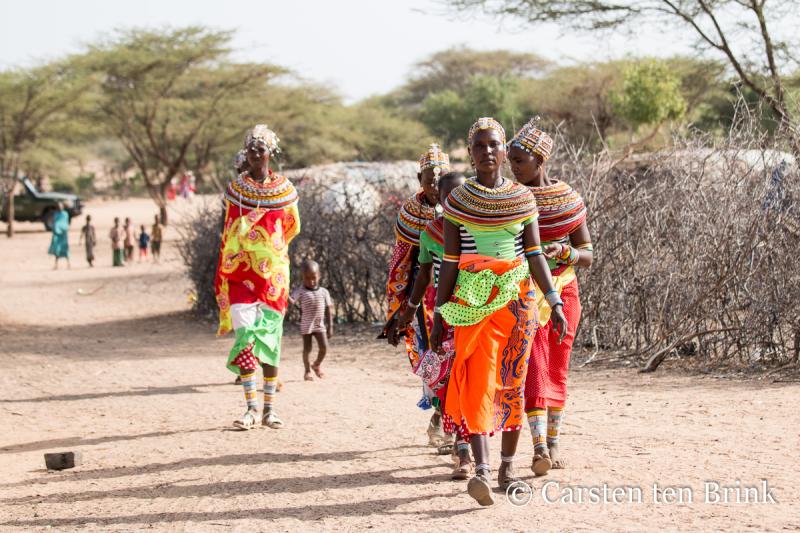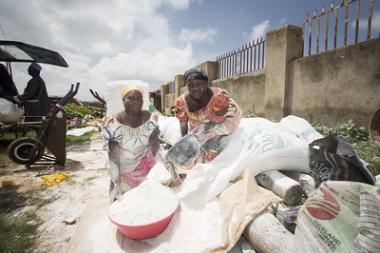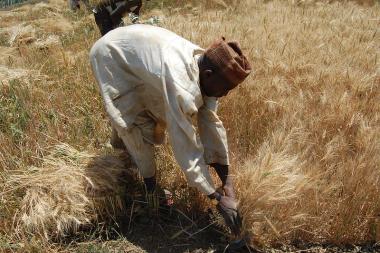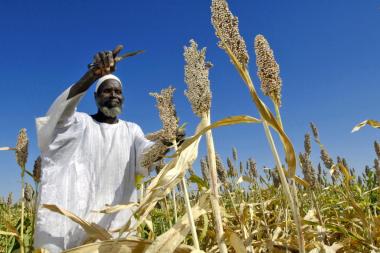News
SPARC receives new IDRC grant to empower women in Africa’s fragile environments
Find out more about a new SPARC research project working with researchers and women and girls in the Sahel to advance gender equality in fragile food systems.
Publisher SPARC
The Supporting Pastoralism and Agriculture in Recurrent and Protracted Crises (SPARC) programme - funded by the UK Foreign, Commonwealth and Development Office (FCDO) - has been awarded funding by the International Development Research Centre (IDRC) for a new research initiative to advance gender equality in fragile food systems.
The 'Advancing Gender Equality in Fragile Food Systems in the Sahel' project is part of ongoing SPARC work to support researchers from the region to work with pastoral and agropastoral communities towards more resilient and equitable livelihoods. The initiative was made possible by an IDRC funding of approximately CAD 1.97 million. The new project has three major goals:
To identify barriers and opportunities to building more gender-responsive and socially-inclusive livelihoods and climate resilient food systems in the African Sahel;
To enhance the capacity of local researchers to effectively integrate gender equality and social inclusion in pastoralism and agropastoralism research;
To facilitate opportunities for learning, communications, engagement, and research uptake by integrating supported research teams within ongoing activities supported by the SPARC programme.
David Baron, President and CEO of Cowater International, SPARC lead partner, said: “Pastoralist communities in the Sahel region are some of the most vulnerable to climate change, conflict and fragility. Women and girls in those communities are facing the compounded burden of unequal rights and unjust social and economic barriers compared to men. We are delighted to partner with IDRC to advance knowledge that will ultimately empower women and build more resilient and prosperous livelihoods.”
The IDRC grant will complement ongoing activities in SPARC, which are focused on finding solutions to the challenges of conflict, fragility, poverty and climate vulnerability for people in the Sahel. The consortium facilitates cross-country research and engagement that builds local capacity to integrate knowledge into effective policy responses.
Jean Lebel, IDRC President, said: “IDRC is pleased to join FCDO in providing support to SPARC as part of our programming on Climate Resilient Food Systems. As we seek to tackle the key development challenges of inequality and climate change, it makes good sense to work with Cowater International and consortia partners to advance the objectives of SPARC. We see this project as a timely opportunity to enable regionally based researchers, working closely with pastoral communities and stakeholders, to identify key barriers and opportunities for advancing women’s empowerment and gender equality in areas of the Sahel experiencing intersecting challenges of conflict, fragility and climate change.”
Prof Charlotte Watts, FCDO Chief Scientific Adviser, said: “Women’s and girl’s economic and social empowerment is a core priority of FCDO. While building the resilience of the world’s most vulnerable communities, climate actions should be informed by the priorities of women and girls, and advance gender equality. We are excited by our collaboration with the IDRC on the SPARC programme, that seeks to generate rigorous evidence on how this can be achieved. This important research in the Sahel, by regional-based experts, will enhance knowledge on the complex dynamics of pastoral livelihoods, ensure that the voices and needs of women and girls inform action on climate change in fragile and conflict affected states.”

Rendille village women, semi-nomadic pastoralists, Kenya
Credit Image by Carsten ten Brink - CC BY-NC-ND 2.0


